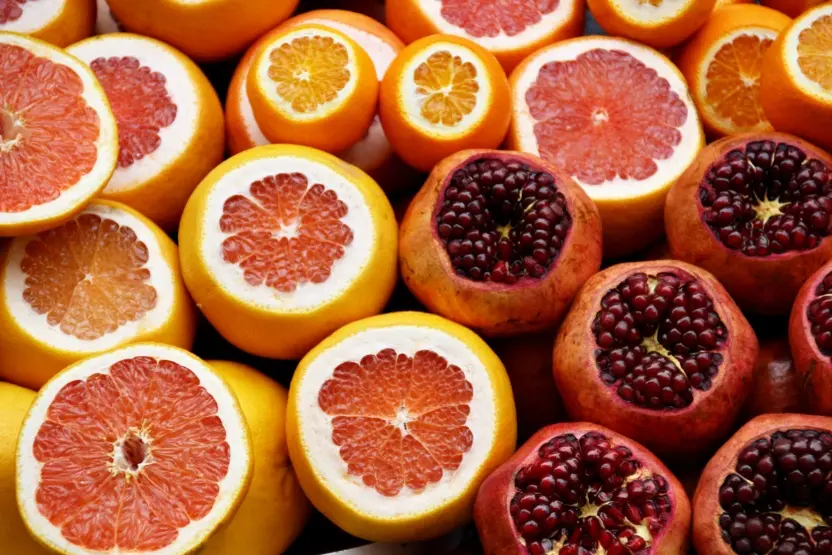Introduction
You’ve probably heard about the benefits of vitamin C – and you may even be taking a supplement to ensure you’re getting enough. But what are the benefits, exactly? And is there such a thing as getting too much vitamin C?
In this article, we’ll explore the benefits of vitamin C and give you some tips on how to make sure you’re getting enough. We’ll also take a look at the potential dangers of taking too much vitamin C and give you some advice on how to avoid an overdose.
What Is Vitamin C and Why Is It Important?
As you know, vitamin C is essential for your health. But what exactly is it? Vitamin C is a water-soluble vitamin that is found in many fruits and vegetables. It is essential for growth and development and helps the body to repair tissue and produce collagen.
Collagen is essential for skin health, as it helps to maintain skin elasticity and reduce the appearance of wrinkles. Vitamin C is also crucial for immune system health, as it helps to fight off infection.
So how can you make sure you’re getting enough vitamin C? The best way is to eat plenty of fruits and vegetables that are high in vitamin C. Some good sources of vitamin C include oranges, grapefruit, kiwi fruit, broccoli, Brussels sprouts and strawberries.
You can also take a vitamin C supplement if you’re not getting enough from your diet. Just be careful not to take too much, as too much vitamin C can be harmful. Symptoms of overdose include nausea, vomiting and diarrhoea.
What Are the Benefits of Vitamin C?
There are many benefits of vitamin C. It helps with everything from maintaining your immune system to keeping your skin looking young and healthy. It’s also an essential part of collagen production, which is important for keeping your skin looking toned and elastic.
You can get your recommended daily allowance (RDA) of vitamin C by eating a varied and balanced diet. Some great food sources of vitamin C include bell peppers, kale, strawberries, and citrus fruits. But if you’re not getting enough vitamin C from your diet, you can also consider taking a vitamin C supplement.
Just be careful not to overdo it. Too much vitamin C can actually have negative consequences, such as diarrhoea and nausea. So it’s important to stay within the recommended dosage. If you’re unsure about how much vitamin C is right for you, be sure to speak with your doctor or health care provider.
Can You Get Too Much of It?
The answer to this question is yes, you can get too much of it. Vitamin C is a water-soluble vitamin, which means that our bodies can’t store it and that any excess will be excreted in our urine. This also means that it’s important to be mindful of how much vitamin C we take, especially if we’re taking a supplement.
While the recommended daily allowance (RDA) for vitamin C is 400mg per day, it’s safe to consume up to 2,000mg per day. However, exceeding this amount can cause health problems such as nausea, diarrhoea and abdominal cramps. So if you’re taking a vitamin C supplement, be sure to read the label and stick to the recommended dosage.
What Food Sources Are High in Vitamin C?
Now that you know why having enough vitamin C is so important, let’s talk about where to get it. Generally speaking, one of the best ways to get your daily dose of vitamin C is to eat plenty of fruits and vegetables. Citrus fruits such as oranges, lemons and limes are especially high in vitamin C. Other foods that are naturally high in vitamin C include kiwis, strawberries, spinach and bell peppers. If you’re not a big fan of vegetables and fruits, try eating more fortified breakfast cereals or taking a daily multivitamin with minerals supplement—most have added vitamin C. Additionally, adding Vitamin C-rich superfoods like camu camu or acerola cherry powder can give you an extra boost.
Are Vitamin C Supplements the Right Choice?
Making sure to get enough Vitamin C doesn’t always have to mean taking supplements. Instead, you can easily reach your daily goal by making smart food choices such as fruits, vegetables, legumes, and nuts. But if you are looking for a way to gain the benefits of the vitamin without having to track and plan your meals, then supplements can be a great alternative.
Vitamin C supplements come in powder and tablet form, so you can easily find one that fits your personal preferences.
Also, note that it is always worth consulting with a doctor before taking any new supplements or making drastic dietary changes, as some people may not be suitable candidates for certain products or foods due to pre-existing medical conditions.
What Other Vitamins Work in Combination With Vitamin C?
Regarding other vitamins that work well with Vitamin C, Vitamin D and Zinc are two big ones. Both vitamins have multiple benefits, ranging from strengthening the immune system to aiding bone health. When combined with Vitamin C, the antioxidant power is increased, offering a range of health benefits.
Vitamin D helps the body absorb calcium, which is essential for healthy bones and teeth. It also supports muscle contractions and helps keep your heart healthy. Zinc works closely with Vitamin C to strengthen your immune system and heal wounds faster. It’s also involved in cell growth and keeps your hormones balanced.
Finally, don’t forget about Vitamin E. This potent fat-soluble vitamin supports good skin health and offers anti-ageing benefits when taken together with Vitamin C. The combination of these vitamins offers many benefits like improved immunity and improved skin health—so make sure you’re getting enough of both!
Conclusion
As a director of a food supplement brand, I understand the importance of supplements in maintaining good health. However, it’s important to note that it’s always best to try and get your essential vitamins and minerals from a healthy and balanced diet.
Vitamin C, for example, is found in many fruits and vegetables such as oranges, lemons, strawberries, peppers and broccoli. Not only is it easy to incorporate these foods into your diet, but they also provide other vital nutrients for overall health.
While supplements can be helpful for those who may struggle to get enough of a particular nutrient from their diet, it’s important not to overdo it. Taking too many supplements can actually be harmful to your health, so it’s essential to focus on the basics and get your necessary vitamins and minerals from food.
Instead, I would recommend paying attention to other essential nutrients, such as vitamin D and omega 3, which can be harder to get from diet alone. These are particularly important for bone and heart health, so it’s essential to ensure you’re getting enough.
This way, you can be sure you’re getting all the crucial nutrients your body needs, and you’re less likely to overdo it with supplements.
If you’re unsure about what nutrients you may be lacking, or if you’re looking for ways to improve your overall health, please don’t hesitate to contact your GP or a registered dietitian for advice.
Our company also provides a wide range of supplements that are carefully formulated to support a healthy lifestyle; if you’re interested, please visit our shop for more information.



